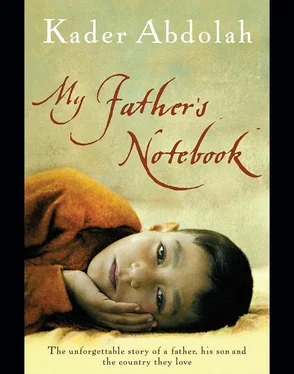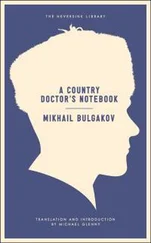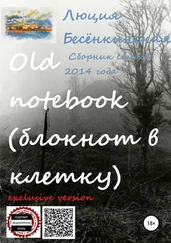“Inside a stone?” Akbar couldn’t believe it.
“Yes. Little tiny things that revolve around each other,” Golden Bell explained, “the way the earth revolves around the sun.”
He still couldn’t believe it. “That’s impossible,” he signed. “A stone is just a stone. If you smashed it with a hammer, you wouldn’t see a thing. No earth, no sun.”
Golden Bell handed him a hammer. He smashed the stone. “You see, no sun.”
“Make it even smaller,” she said.
He did it. Smaller and smaller and smaller. He banged away at that stone until it was just a heap of sand and it couldn’t get any smaller.
“The sun is inside the tiniest grain of sand,” Golden Bell said.
Akbar laughed out loud.
She’s smart, he thought as he neared the prison. She gets all of that from books. He remembered another of Golden Bell’s explanations. One time she laid her head on his chest and said, “Boom, boom, boom.”
“What do you mean, ‘boom, boom, boom’?” he signed.
“Here, just under your ribs, you’ve got a motor,” she replied.
“A motor?”
He laughed, but she opened a book and showed him a picture of the motor under his ribs that went boom, boom, boom.
The prison was on a hill. By the time Akbar reached the square in front of the prison, the sun had come up. He was early, so he went to the teahouse to wait for Tina. The owner brought him a cup of tea and asked him if he wanted to eat anything.
“Bread and cheese,” he gestured.
He looked out of the window at the snow-covered mountains and at the tiny windows of the prison cells. Golden Bell is in one of those cells, he thought. She knows I’m waiting here in the teahouse. Soon I’ll be able to see her and s he’ll ask, “How are you, Father? Did you walk here? You shouldn’t do that, your knee will start acting up again. Why don’t you take the bus?”
“I don’t like the bus. I can’t think because of those smelly exhaust fumes. Walking gives me a chance to think.”
He hates it when a guard stands next to Golden Bell and keeps his eye on her during the whole visit. Tina says he ought to ignore the man, simply pretend he’s not there. But he can’t.
One time he motioned to the guard to move aside.
Tina immediately tugged at his sleeve. “Don’t do that! They might not let us see her again.”
Visiting hours are short, the time flies by. “Don’t complain,” Tina says, “it’s better than nothing.”
Akbar saw the bus go past the teahouse and stop at the bus stop. He watched the visitors get out.
He saw Tina, carrying the vegetables she’d bought for Golden Bell. She’s having trouble walking, Akbar thought. He hadn’t noticed it before. She’s getting old, he realised.
Political prisoners were not allowed to have any visitors except their parents. When the gates opened, the parents poured into the visiting room and stood behind a wall of bars. The prisoners were lined up behind another set of bars, about five feet away. Since everyone talked at the same time, you had to shout to make yourself heard. You also had to be quick, because there wasn’t much time. Any unspoken words had to be left unsaid for another month.
Sometimes a mother’s scream cut through the tumult. There was an immediate hush, because they all knew that when prisoners didn’t appear, it was because they’d been executed. Visiting hours were a torture to the parents. They died a thousand deaths before their sons and daughters appeared behind the bars. Will he be there today? Will she be there today?
Akbar wasn’t aware of this possibility. Tina had spared him the anxiety. But she was always on tenterhooks until she saw Golden Bell.
The inner door opened. The guard led the prisoners to the bars, but Golden Bell didn’t appear — her place remained empty. Tina wanted to scream, but she didn’t dare. Akbar saw the vegetables trembling in her hand. Tina fainted and Akbar panicked.
Two guards grabbed Tina under the arms, dragged her across the floor and took her outside. Akbar hurried after them, then turned and went back in.
“Where’s my daughter?” he signed to a guard standing on the other side of the bars. The guard didn’t answer.
“Golden Bell, my daughter,” he quickly gestured, while glancing anxiously at Tina, who was lying by the gate.
The guard pretended not to see him.
At the end of visiting hours, the guards sent the parents away.
“You, too! Get out!” the guard gestured.
“I haven’t seen my daughter.”
“Get out!” the policeman yelled, pointing at the door.
Akbar didn’t want to go. The policeman grabbed him by the arm, “I told you to get out!”
Akbar clamped onto the bars and shouted, “M-y-y-y G-oo-o-l!”
Three guards yanked him loose and pushed him out of the door. He lifted his cane and was about to bring it down on the head of a guard, when he suddenly remembered what Tina had said, “Don’t get angry. Don’t talk to the guards. And don’t hit anyone in uniform. If you do, they’ll kill Golden Bell!”
Akbar lowered his cane, smiled and gestured, “OK, I’m leaving.”
The other parents were waiting for him outside. They crowded around him.
“Well? Did you see her?”
“No! They shoved me out,” he gestured.
“Such rudeness. They’re not people, they’re animals,” one mother muttered.
“Where’s my wife?”
“A couple of women are taking her home,” a man gestured.
“Is she all right?”
“Don’t worry. They’ll take care of her.”
Akbar didn’t know what else to do. Everyone was whispering that Golden Bell had probably been executed.
“But in that case, the family should have been informed,” one mother murmured.
“They’re worse than you think,” another one said. “They want you down on your knees. Only then will they tell you they’ve murdered your child.”
“In the bus on the way here,” another mother whispered, “I heard that the guards had been combing the mountains all night with police dogs and searchlights, looking for some prisoners who had escaped.”
“Really?”
“Apparently three prisoners have escaped.”
“From the mullahs’ prison? Are you crazy?”
“I heard it, too,” another man said warily. “People were talking about it in the teahouse.”
The mothers covered their faces with their chadors and continued to stand in little groups, talking.
Akbar was standing off to the side by himself.
Two jeeps with armed guards and dogs drove down the hill and stopped in the square.
“Get out of here!” shouted one of the guards. “Go home!”
The mothers hurried off to the bus stop, where the fathers were already waiting for them.
The bus had gone and the square was empty. An icy mountain wind swept through the square. Akbar stood at the bus stop. He was hoping the prison imam would come out.
In that case he’d walk up to the imam, kiss his hand and throw himself on his mercy: “Golden Bell didn’t come. And my wife fainted. Do you perhaps know what—”
The prison gate swung open. A female guard came out, wrapped in her chador. She walked over to the bus stop.
Akbar recognised her. She was the daughter of one of his customers. He nodded to her in greeting and she nodded back.
“My daughter,” he hesitantly gestured. “She didn’t come.”
The woman glanced up at the prison and moved a few steps away from him.
“My wife fainted,” Akbar went on. “I asked the guard where Golden Bell was, but—”
The woman looked anxiously at the gate, then at the teahouse.
“Your daughter is gone!” she signed, concealing the gesture beneath her chador.
“Gone?” Akbar gestured in surprise.
Читать дальше












